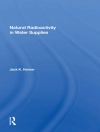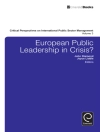This anthology explores the dynamics of shared religious sites in Turkey, the Balkans, Palestine/Israel, Cyprus, and Algeria, indicating where local and national stakeholders maneuver between competition and cooperation, coexistence and conflict. Contributors probe the notion of coexistence and the logic that underlies centuries of ‘sharing, ‘ exploring when and why sharing gets interrupted—or not—by conflict, and the policy consequences.
These essays map the choreographies of shared sacred spaces within the framework of state-society relations, juxtaposing a site’s political and religious features and exploring whether sharing or contestation is primarily religious or politically motivated. Although religion and politics are intertwined phenomena, the contributors to this volume understand the category of ‘religion’ and the ‘political’ as devices meant to distinguish between the theological and confessional aspects of religion and the political goals of groups. Their comparative approach better represents the transition in some cases of sites into places of hatred and violence, while in other instances they remain noncontroversial. The essays clearly delineate the religious and political factors that contribute to the context and causality of conflict at these sites and draw on history and anthropology to shed light on the often rapid switch from relative tolerance to distress to peace and calm.
Содержание
Introduction, by Elazar Barkan and Karen Barkey
1. Religious Pluralism, Shared Sacred Sites, and the Ottoman Empire, by Karen Barkey
Comparisons: Cyprus/Bosnia/Anatolia/Algiers
2. Three Ways of Sharing the Sacred: Choreographies of Coexistence in Cyprus, by Mete Hatay
3. Religious Antagonism and Shared Sanctuaries in Algeria, by Dionigi Albera
4. Contested Choreographies of Sacred Spaces in Muslim Bosnia, by David Henig
Palestine/Israel
5. At the Boundaries of the Sacred: The Reinvention of Everyday Life in Jerusalem’s al-Wad Street, by Wendy Pullan
6. The Politics of Ownership: State, Governance, and the Status Quo in the Church of the Anastasis (Holy Sepulchre), by Glenn Bowman
7. Choreographing Upheaval: The Politics of Sacred Sites in the West Bank, by Elazar Barkan
8. The Impact of Conflicts Over Holy Sites on City Images and Landscapes: The Case of Nazareth, by Rassem Khamaisi
Museums
9. Tolerance Versus Holiness: The Jerusalem Museum of Tolerance and the Mamilla Muslim Cemetery, by Yitzhak Reiter
10. Secularizing the Unsecularizable: A Comparative Study of the Haci Bektas and Mevlana Museums in Turkey, by Rabia Harmansah, Tugba Tanyeri-Erdemir, and Robert M. Hayden
Bibliography
Contributors
Index
Об авторе
Elazar Barkan is professor of international and public affairs at Columbia University, director of the School of International and Public Affairs’ Human Rights Concentration, and director of Columbia’s Institute for the Study of Human Rights. He is the coauthor of No Return, No Refuge: Rites and Rights in Minority Repatriation and author of The Guilt of Nations: Restitution and Negotiating Historical Injustices.Karen Barkey is Haas Distinguished Chair of Religious Diversity and professor of sociology at the University of California, Berkeley.












